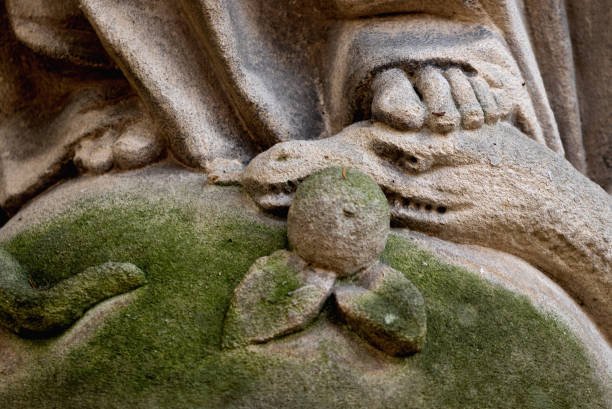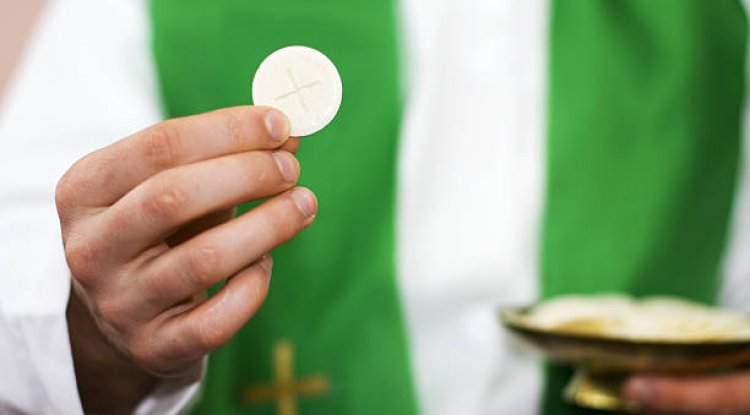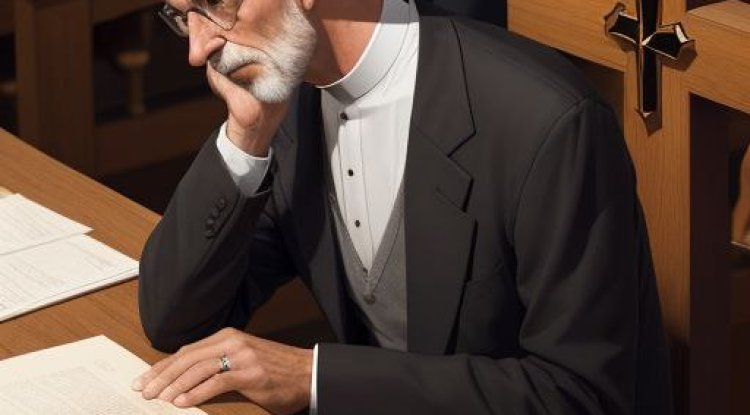VICTORY OVER SIN THROUGH THE OFFSPRING OF A WOMAN
HOMILY FOR TENTH SUNDAY IN ORDINARY TIME, YEAR B. Readings: Genesis 3:9-15; Psalm 130; 2Corinthians 4:13-5:1 and Mark 3:20-35.

There are things that comes with sin, among them are guilt, shame and fear. These are ways sin affects our lives as Christians. It separates us from God and eventually brings negative consequences, affecting our relationships and peace of mind. It corrupts a person’s innocent mind e enslaves us. Sin produces more sin, which ends in producing death. Based on the consequences of sin, that God who is rich in mercy and love promised humanity of the victory over sin through the offspring of a woman as seen in the readings of today.
It is popularly said, “Clear conscience fears no accusation.” This is what the first reading presents to us. When God ask Adam, “Where are you?” (Gen 3:9), was a form of accusation, knowing fully well where Adam was, but guilty conscience made Adam to respond to a geographical question with biological answer, saying, “I am naked” (v.10). This bring s to mind happier days when “They were both naked, the man and his wife were not ashamed” (Gen2:25). Now the man is naked and afraid.
From Adam’s response, God asked two important questions: “who told you that you were naked?” (3:11). The man had always been naked, but hadn’t considered that to be a problem during his time of innocence. It is only after his sin that he recognizes the reality of nakedness, that it causes him embarrassment. The second question, God ask: “Have you eaten from the tree which I commanded you not to eat?” In response, Adam said, “The woman whom you gave to be with me, she gave me fruit of the tree and I ate” (v.12). invariably, Adam was saying if God had not given him Eve, he would not have eaten. The woman therefore is the immediate cause of the trouble, but God is the real culprit in Adam’s argument.
Shortly before now, when the Lord presented the woman to the man, the man said, “This is now bone of my bone and flesh of my flesh. She will be called ‘woman,’ because she was taken out of man” (2:23). That was a cry of Joy. The may was overjoyed to have a suitable partner to keep him company. He had been lonely, but was lonely no more. But those were the days of innocence. Now that sin has entered the picture, the man’s tune changed. It’s no longer the ‘sweet heart’ or the bone of my bone. It is now, “The woman whom you gave to be with me, she gave me fruit of the tree and I ate” (v.12). The message is clear. Sin not only breached the man’s relationship with God, it also breached his relationship with the woman. Sin does that. It destroys relationships. It makes us suspicious and bitter. It leads to distrust and turns us against those who love us.
While God also accuses the woman saying, “What is this that you have done?” (v.13), the woman shifts the blame to the serpent. We can give credit to the woman who did not blame God unlike the man. God did not question the serpent but pronounce a curse on it “Because you have done this, cursed are you above all cattle…I will put enmity between you and the woman, and between your seed and her seed; he shall bruise your head and you shall bruise his heel” (vv.14-15). A serious strike to the heel can be painful, but a strike to the head can be destructive. This verse (v.15) is otherwise known as protevangelium, the first Good News, the Good News that Satan will be defeated. However, the question here is, who is “he,” the “he” that shall bruise the head of the serpent?
The basic interpretations given to the protevangelium is the new Adam which is Christ, who overcome sin and death, and the new Eve, which is the Blessed Virgin Mary. We will see Christ struck on the head at the cross, but his resurrection will transform the event. It will show Satan to have power only to strike Christ’s heels rather than his head, Satan’s power to impose only a painful wound rather than a final death. Through the resurrection of Christ, He bruised the head of Satan, and like a wounded serpent, Satan continues to trike often with deadly results. However, Christ has empowered the Church to continue the battle until Satan’s power is finally and forever defeated. It is on this note St. Paul in the second reading says to us, “…knowing that he who raised Jesus will raise us also with Jesus and bring us with you into his presence” (2Cor. 4:14). Despite the striking of a wounded serpent, St. Paul encourages believers to stay strong as he talks about faith during difficult or challenging times.
Christ in the gospel faced many challenges during His ministry. His own family did not understand Him. Religious leaders opposed Him. He was accused of being possessed by Beelzebul, and by the prince of demons he cast out demons. In response he said, “How can Satan cast out Satan?” (Mk 3:23). Christ’ images of a kingdom divided against itself cannot stand, illustrate the fallacy of the scribes. Put differently, their lies and evil. Evil will always produce evil. Notwithstanding, Christ said, “All sins will be forgiven the sons of men, and whatever blasphemies they utter; but whoever blasphemes against the Holy Spirit never has forgiveness, but is guilty of an eternal sin” (vv.28-29). This indicates a person who resist the convicting power of the Holy Spirit unto repentance. Such a person has gone beyond redemption, a place where forgiveness is no longer possible. What prompted this was the response of the scribes who said, “Ha has Beelzebul” (v22), declaring the work of Christ evil. As scribes, they were Biblical scholars and were expected to know more about the laws, but subverted the truth by saying Christ did his work by demonic power. They rejected the one who could have brought them forgiveness. They not only fail to see the light, but also call the light darkness. In such a case, how can we help such person? Hence, it becomes an unforgivable sin because it is the sin of refusing forgiveness.
Despite these challenges, Christ stayed focused on His mission. We too may face opposition in our lives. People may not understand our faith. They may not understand why we so much honour the Blessed Virgin Mary, as through Her, Christ bruised the head of the serpent, which gained for us, victory over sin and death. We are encouraged to embrace the second Adam and His Mother, through Him we are saved.
Happy Sunday
Fr. Ken Dogbo, OSJ
What's Your Reaction?



















